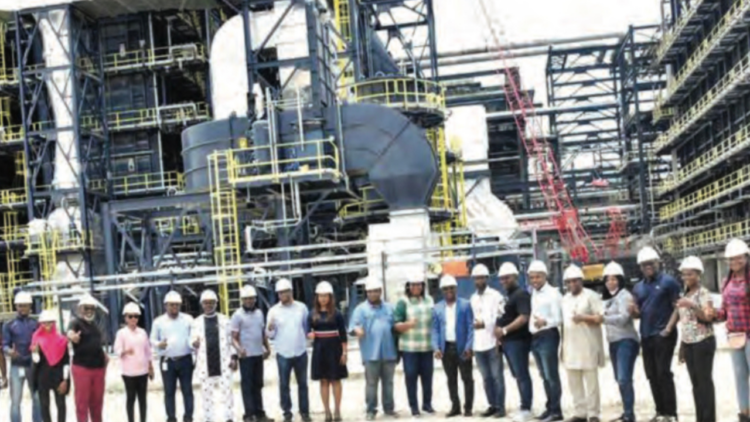
Dangote Refinery has secured its first cargo deal of about 6 million barrels, ready for delivery, even as the much-anticipated project begins with 350,000 barrels a day next month, founder Aliko Dangote has disclosed.
The refinery is expected to transform oil trading in the Atlantic Basin and remove a lucrative outlet for fuels produced in Europe and the United States that have for years powered the cars, trucks, and generators on the continent.
According to sources, the refinery would start churning out diesel, kerosene, and jet fuel as soon as December.
Speaking with the Financial Times, Dangote, who described Nigeria’s inability to refine its crude oil as “shameful” despite being a major oil producer for more than 50 years, said the country will, in a matter of weeks, start producing refined petroleum products again.
Dangote, who conceded there were times when he thought the massive project—long delayed and about $7 billion over budget—might jeopardize his business empire, expressed gratitude to God for delivering the multi-billion-dollar project, despite many challenges.
He said, “The challenges that we faced, I don’t know whether other people can face these challenges and even survive. It’s either we sink or we sail through. And we thank Almighty that at least we’ve arrived at the destination.
“You will not see this kind of project in Nigeria in the next 20 years. No outside contractor had been willing to take on Nigerian risk. We didn’t cut costs. We didn’t cut corners. We didn’t do it for people to clap us. We did it for posterity.”
The International Monetary Fund, IMF, had said it doubts the refinery will reach more than a third of its 650,000 barrels a day capacity by 2025, but Dangote was optimistic that the refinery could reach that capacity by the end of 2024.
The refinery is located in the Lekki Free Trade zone in Lagos State. Once it is fully up and running, it will turn oil powerhouse Nigeria into a net exporter of fuels, a long-sought goal for the country that is currently almost totally reliant on imports.
Reacting to information that the Nigerian National Petroleum Company Limited, NNPCL, which owns 20 per cent of the refinery after a $2.76 billion equity purchase in 2021, has been unable or unwilling to supply the crude the refinery needs, Dangote said, “Let’s not have the blame game here. We have resolved all the issues of supply.”
Speaking on shareholding by the NNPCL and some insinuations that he rejected suggestions that NNPC was playing hardball to negotiate a bigger share of the refinery, Dangote said, “I don’t think NNPCL needs to buy more shares. I think they’re OK with what we’ve given them.”
Six cargoes or 200,000 barrels of crude oil a day would be supplied in December as part of a one-year deal to the refinery by the NNPCL.
The refinery began the commissioning process in May this year after running years behind schedule at a cost of $19 billion, above initial estimates of $12-14 billion.
The commissioning includes testing the different units that make products from gasoline to diesel and making sure they respond to the control panels.
The facility was commissioned by former President Muhammadu Buhari a few months ago at the twilight of his administration.



